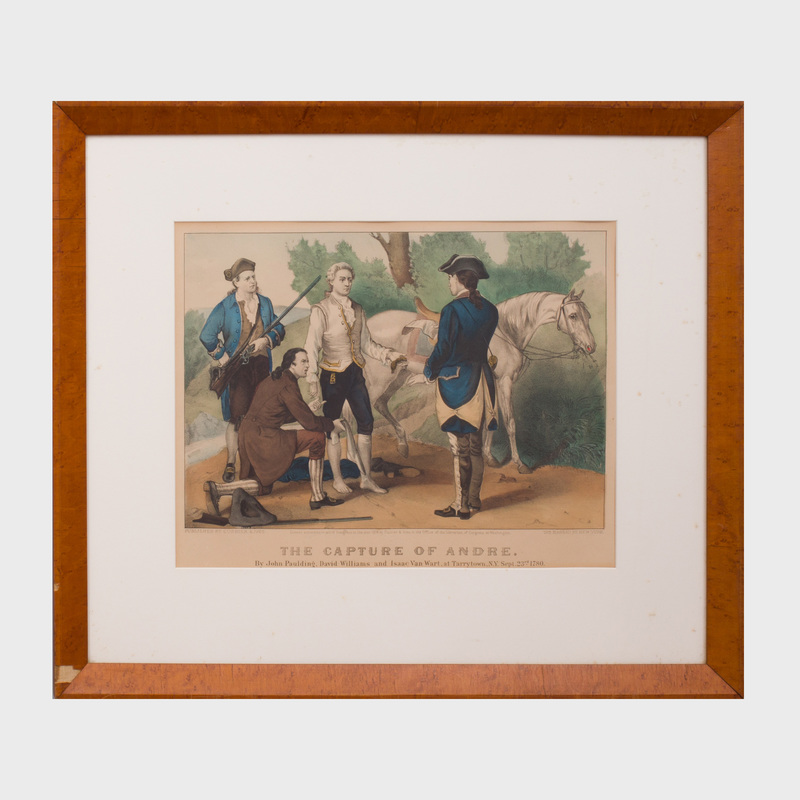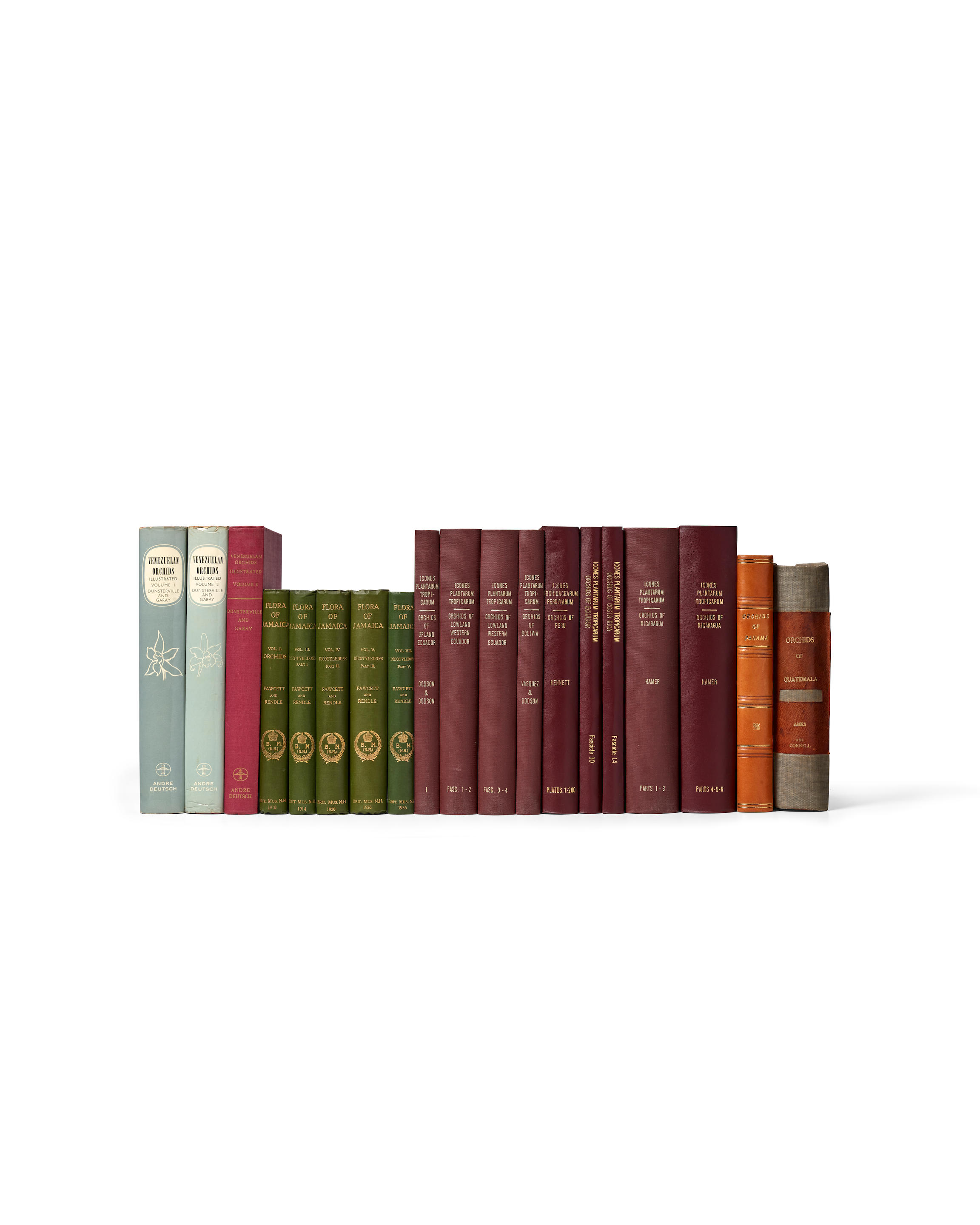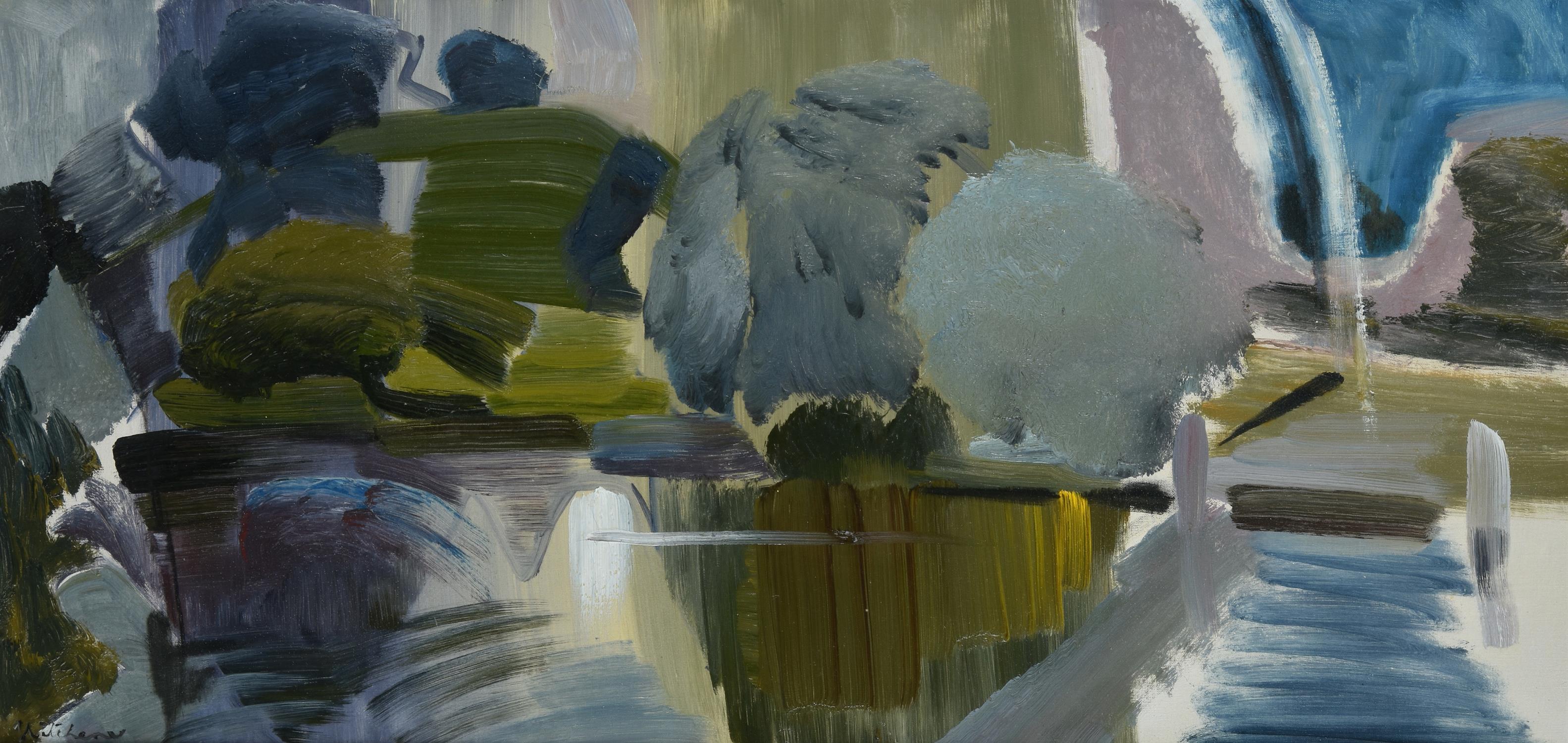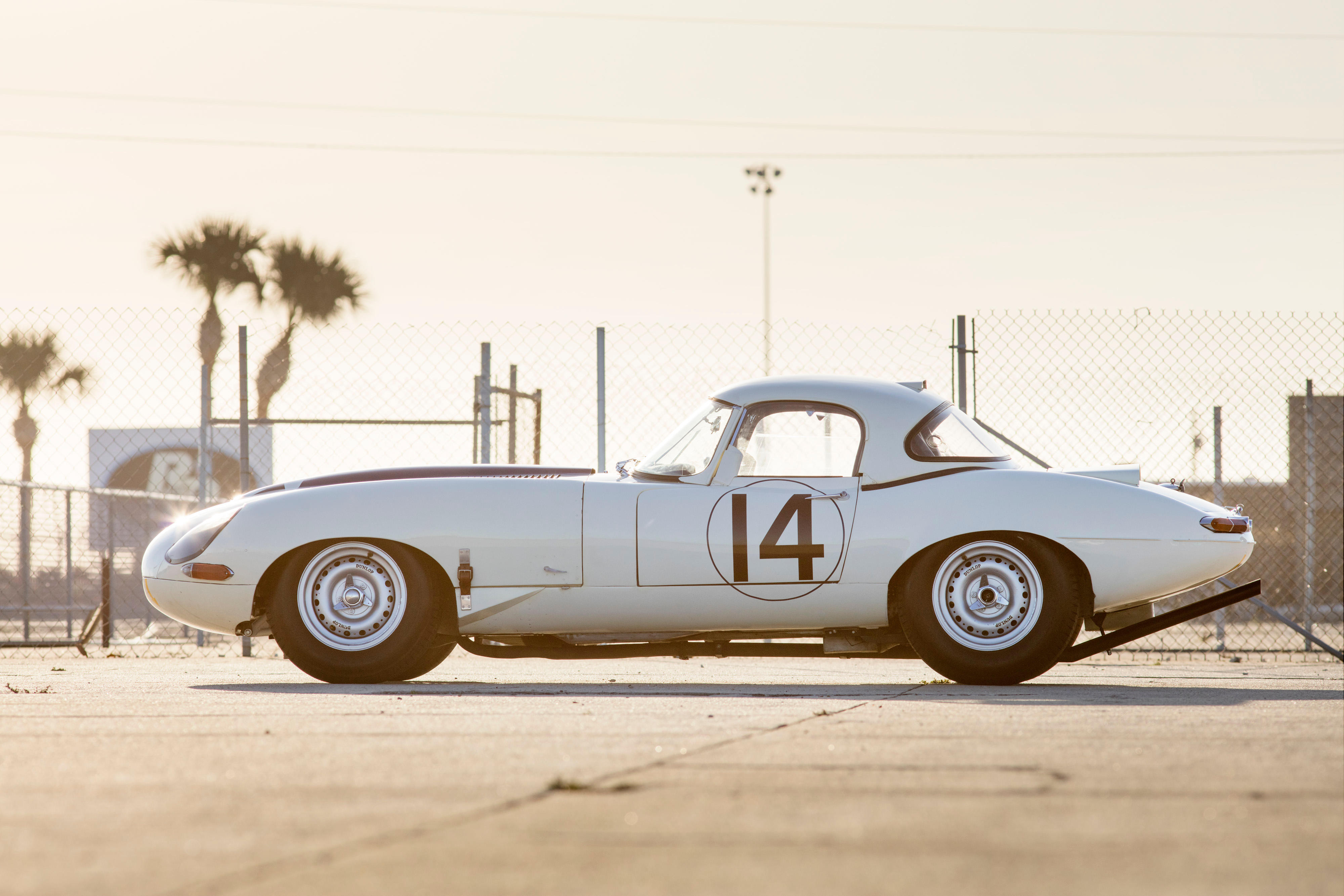ANDRE, John (1750-1780) – WILLIAMS, David (d. 1831). A late eighteenth-century carnelian and gold ring depicting a bust portrait of a gentleman in a wig, inscribed on reverse, "Major [A]ndre Execute as a Spy by George Washington Octr 2nd 1780." Carnelian and gold ring, designed as a carved oval carnelian intaglio, 26 x 18 x 26mm. (wear on reverse resulting in the loss of one letter in inscription, evidence of repair to the band). David Williams and the capture of Major John André A significant discovery: a ring bearing a portrait of gentleman in a wig (presumably a likeness of André), manufactured in recognition of the services of David Williams one of three Tarrytown militiamen who captured John Andre as he was making his way to the British lines north of New York City after his meeting with Benedict Arnold on the morning of 23 September 1780. André had planned to return aboard the H.M.S. Vulture which had brought him to his meeting with Arnold, but a detachment of American troops spotted the British warship and began firing upon it, forcing it to descend the Hudson without him. André instead rode horseback to the south in civilian clothes, armed with a pass from Arnold. Arriving in Tarrytown, New York, André was stopped by three militiamen, David Williams John Paulding, and Isaac Van Wart. Mistakenly assuming the three were Tories, he informed them he was a British officer and that they should let him pass. The three informed the major that they were Americans, and proceeded to search him and discovered Arnold's papers in his boot. André attempted to bribe the three, but to no avail, and instead they marched him to the nearest continental post. The plot quickly unraveled, but Arnold had escaped to the British Lines. André was placed on trial at Tappan. Because he was caught in civilian clothes, he was convicted as a spy, punishable by hanging. The condemned officer appealed to Washington to be executed by firing squad, but the rules of war dictated otherwise, and he was hung at Tappan, New York, on 2 October 1780. Among the witnesses was none other than David Williams In recognition of their service, Congress ordered medals struck for Williams, Paulding and Van Wart – the first military decoration ever awarded in the United States – as well as awarding them a pension of $200 a year, while New York State offered them choice farmland. Despite their status as heroes, their reputations were challenged in some quarters. During his trial, André insisted the men were mere brigands and would have released him had he offered a large enough bribe. Benjamin Tallmadge echoed this accusation when he persuaded Congress not to grant an increase in their pensions in 1817 insisting they were mere "cowboys" – a term used to describe the lawless highwaymen who prowled the lines outside of New York during the war, robbing travelers indiscriminately – British and American alike. Despite these claims, many Americans revered these men as examples of the bravery and incorruptibility of the common soldier during the Revolution. At age 77, in the last year of his life, Williams was still the object of popular interest and was invited to a "public supper" in New York's Ninth Ward as a guest of honor. Although family tradition claims that this ring was taken from John André following his capture (or given to Williams by André in some versions), a thorough search of wax seal impressions on period correspondence from the British officer do not match. Rather it is believed that this ring was made for David Williams in honor of his heroic deed, and it is the only award of any sort given to André's captors of which the location is currently known . At the time of writing, the whereabouts of the three Fidelity Medallions awarded by Congress are unknown. The medals awarded to Williams and Paulding were donated to the New York Historical Society in 1905, but were stolen in the mid-1970s together with a pocket watch formerly owned by André. The whereab
ANDRE, John (1750-1780) – WILLIAMS, David (d. 1831). A late eighteenth-century carnelian and gold ring depicting a bust portrait of a gentleman in a wig, inscribed on reverse, "Major [A]ndre Execute as a Spy by George Washington Octr 2nd 1780." Carnelian and gold ring, designed as a carved oval carnelian intaglio, 26 x 18 x 26mm. (wear on reverse resulting in the loss of one letter in inscription, evidence of repair to the band). David Williams and the capture of Major John André A significant discovery: a ring bearing a portrait of gentleman in a wig (presumably a likeness of André), manufactured in recognition of the services of David Williams one of three Tarrytown militiamen who captured John Andre as he was making his way to the British lines north of New York City after his meeting with Benedict Arnold on the morning of 23 September 1780. André had planned to return aboard the H.M.S. Vulture which had brought him to his meeting with Arnold, but a detachment of American troops spotted the British warship and began firing upon it, forcing it to descend the Hudson without him. André instead rode horseback to the south in civilian clothes, armed with a pass from Arnold. Arriving in Tarrytown, New York, André was stopped by three militiamen, David Williams John Paulding, and Isaac Van Wart. Mistakenly assuming the three were Tories, he informed them he was a British officer and that they should let him pass. The three informed the major that they were Americans, and proceeded to search him and discovered Arnold's papers in his boot. André attempted to bribe the three, but to no avail, and instead they marched him to the nearest continental post. The plot quickly unraveled, but Arnold had escaped to the British Lines. André was placed on trial at Tappan. Because he was caught in civilian clothes, he was convicted as a spy, punishable by hanging. The condemned officer appealed to Washington to be executed by firing squad, but the rules of war dictated otherwise, and he was hung at Tappan, New York, on 2 October 1780. Among the witnesses was none other than David Williams In recognition of their service, Congress ordered medals struck for Williams, Paulding and Van Wart – the first military decoration ever awarded in the United States – as well as awarding them a pension of $200 a year, while New York State offered them choice farmland. Despite their status as heroes, their reputations were challenged in some quarters. During his trial, André insisted the men were mere brigands and would have released him had he offered a large enough bribe. Benjamin Tallmadge echoed this accusation when he persuaded Congress not to grant an increase in their pensions in 1817 insisting they were mere "cowboys" – a term used to describe the lawless highwaymen who prowled the lines outside of New York during the war, robbing travelers indiscriminately – British and American alike. Despite these claims, many Americans revered these men as examples of the bravery and incorruptibility of the common soldier during the Revolution. At age 77, in the last year of his life, Williams was still the object of popular interest and was invited to a "public supper" in New York's Ninth Ward as a guest of honor. Although family tradition claims that this ring was taken from John André following his capture (or given to Williams by André in some versions), a thorough search of wax seal impressions on period correspondence from the British officer do not match. Rather it is believed that this ring was made for David Williams in honor of his heroic deed, and it is the only award of any sort given to André's captors of which the location is currently known . At the time of writing, the whereabouts of the three Fidelity Medallions awarded by Congress are unknown. The medals awarded to Williams and Paulding were donated to the New York Historical Society in 1905, but were stolen in the mid-1970s together with a pocket watch formerly owned by André. The whereab














Try LotSearch and its premium features for 7 days - without any costs!
Be notified automatically about new items in upcoming auctions.
Create an alert